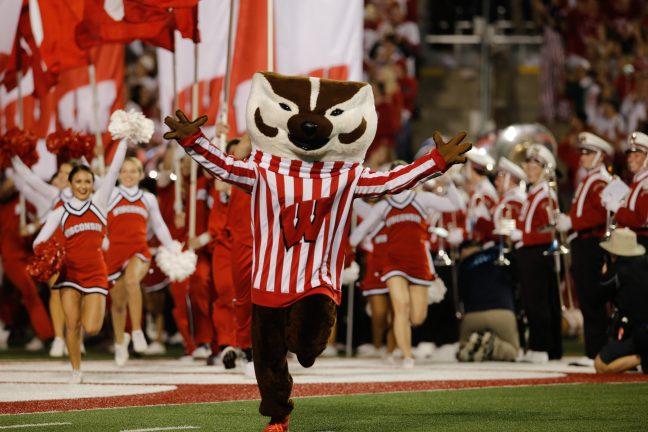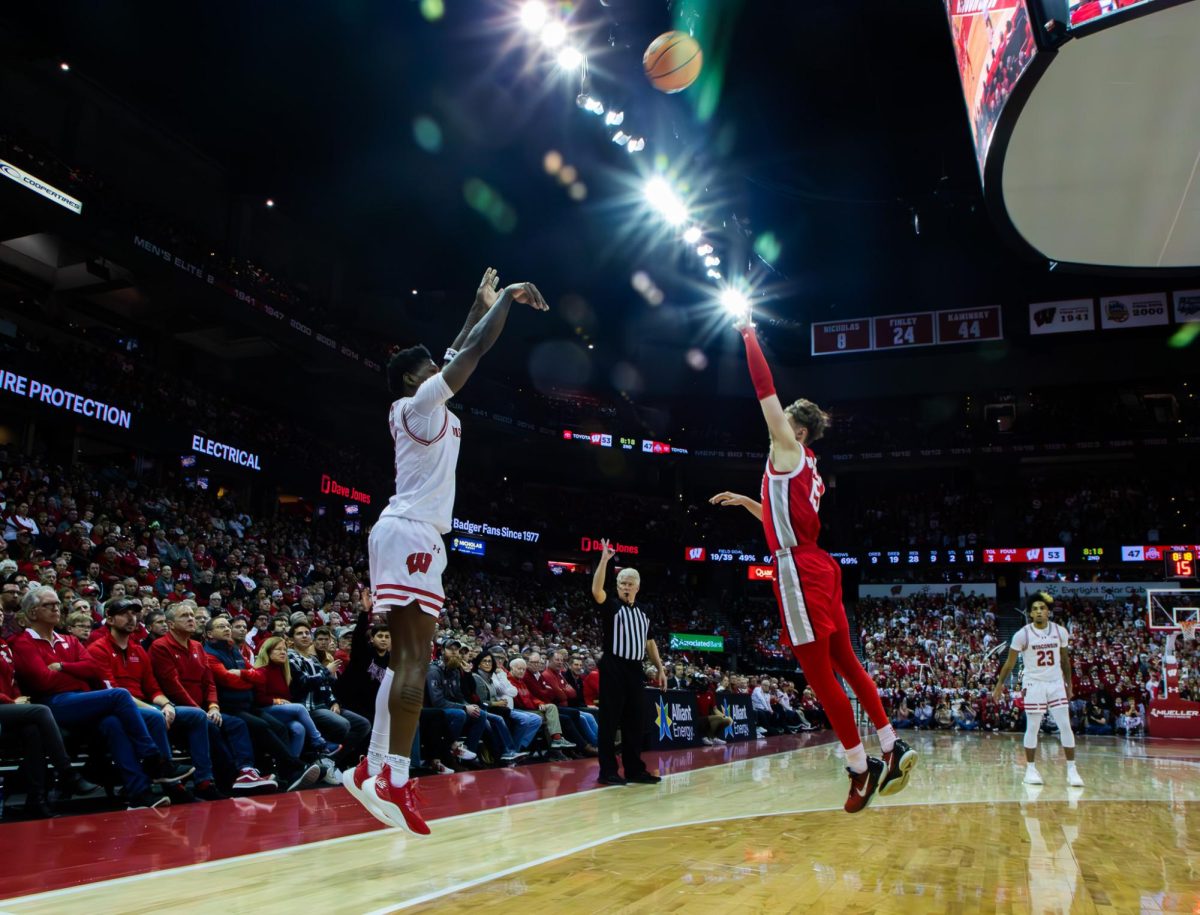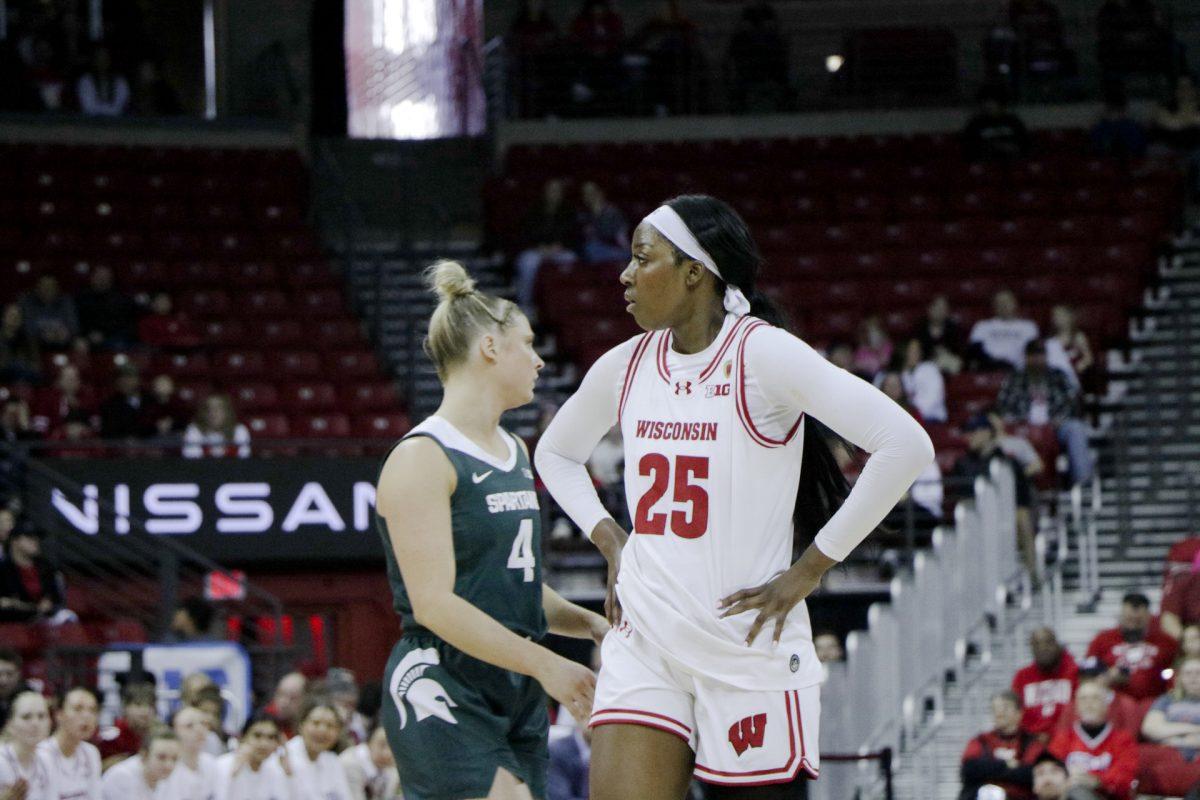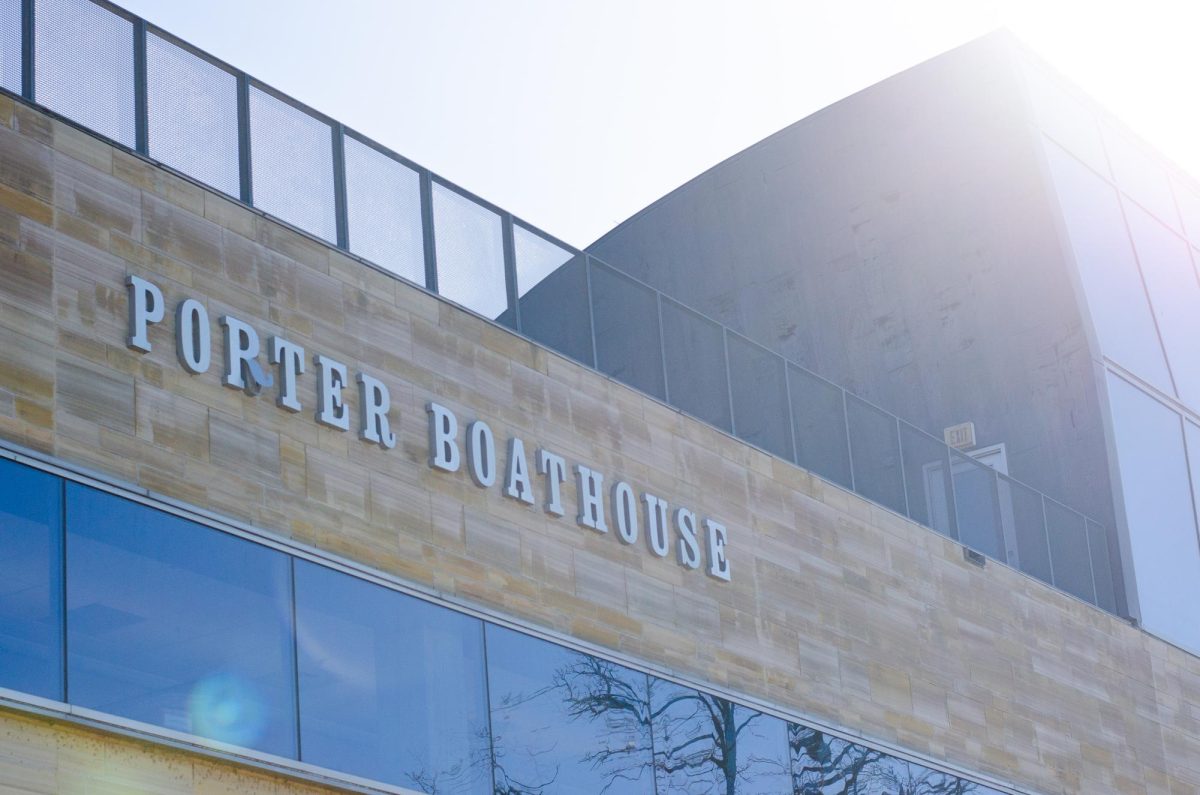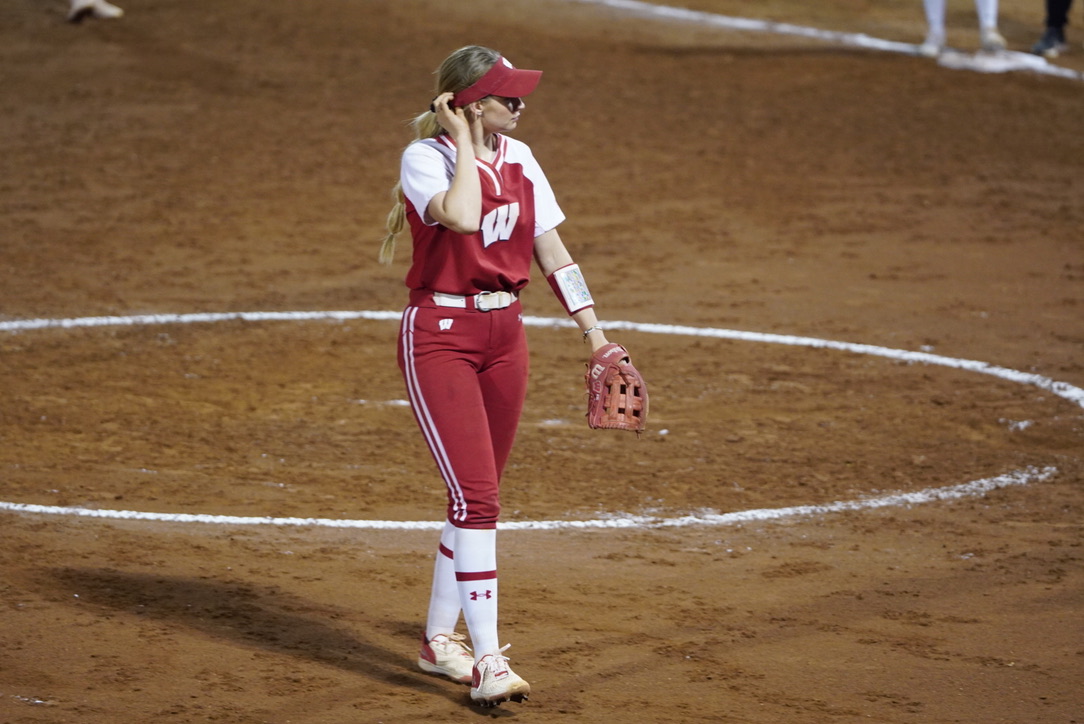It comes as no secret that the University of Wisconsin football program suffered one of the worst COVID-19 outbreaks in the NCAA. While the team’s most recent update confirmed that only two players and three staff members are currently positive, the program is less than a week removed from having 27 confirmed cases, teetering on the edge of the Big Ten’s red-red positivity rate and triggering a mandatory shutdown for the program.
Though the program did not mathematically reach these levels and instead went into an optional and temporary shutdown of all football operations, questions regarding whether or not the protocols set forth by the conference are sufficient in preventing COVID-19 outbreaks in other sports arose.
Every team has the same basic procedures. Workouts and practice are primarily conducted in small groups, masks are to be worn at all times while indoors and every sport has a mandatory 14-day quarantine period upon the reception of a positive test, except for football, which has instituted a 21-day quarantine.
Where teams differ is testing protocol and scheduling. Hockey and basketball have begun daily antigen testing in preparation for their upcoming season. Volleyball and soccer, who were rescheduled from their usual fall season to a spring championship per a NCAA Division 1 Council proposal, remain on a bi-weekly testing schedule. Friday, Nov. 6, the Big Ten Conference and the Western Collegiate Hockey Association released the first half of both the men’s and women’s hockey schedule, respectively.
“To be honest I sort of stand neutral,” UW women’s hockey head coach Mark Johnson said in regards to the WCHA schedule release, per the Wisconsin women’s hockey Twitter. “As an athletic department, as coaching staff for your respective sports, the utmost is the safety of your players, trying to keep everybody healthy and trying to put a schedule together … It’s a good day for our league, hopefully we can build off of this momentum and keep everybody in a good place and a good space.”
Basketball, which is slated to begin 11 days after men’s hockey but two days before women’s hockey, has yet to receive a full schedule. Currently, the men’s team has three games confirmed out of an allowed 27 scheduled — a debut home game against Eastern Illinois, a rivalry game against Marquette in Milwaukee and a home bout against Louisville in the 22nd annual Big Ten/ACC Challenge. The women’s basketball team will not be participating in the challenge and has yet to receive any confirmation on who they might be playing this season.
Trying to plan for a series of hypothetical matchups has been one of the most challenging aspects of coaching during the pandemic. On top of an already shortened preseason, both teams have a little more than two weeks to prepare for a marginally shortened season.
Men’s Basketball: How senior leadership could give Badgers an edge in Big Ten
The Big Ten shifted men’s and women’s cross country, men’s and women’s soccer and women’s volleyball to the spring season in an effort to allow maximum scheduling flexibility with as much knowledge available to teams. The Badgers have one of the best women’s volleyball and women’s soccer teams in the country, as both will compete for conference titles and potentially national championships.
After two consecutive cancellations, legitimate concerns arose around whether teams that share the same athletic facilities as the football program are in jeopardy of their own outbreak. Athletic Director Barry Alvarez quickly dismissed these claims in a media session.
“Looking at their numbers, I don’t see any issues with those teams,” Alvarez said in a Zoom call with media Nov. 3. “I think they’re practicing and moving forward and are doing OK at this point.”
UW Volleyball Associate Athletic Communications Director Diane Nordstrom echoed the sentiment.
“Volleyball has not been affected by football as the teams have been separated,” Nordstrom said.
COVID-19 has highlighted the major incongruences between how different schools and programs approach working around the virus. Rules and regulations differ between conferences. Big 12, SEC and ACC schools have already begun their volleyball seasons while the Big Ten has elected to start on the NCAA-proposed Jan. 22, 2021 date. Everything from fan attendance to testing regulation to basic scheduling has been approached on a conference-by-conference basis.
Wisconsin and the Big Ten operate under a completely different set of circumstances than other Power Five programs. And while the guinea pig football season has yet to deter other sports, the fact that nearly a third of the Wisconsin football program contracted COVID-19 and, as a result of cancellations, is on the brink of bowl game disqualification shows that each team has to be even more diligent than what Big Ten protocols dictate.








